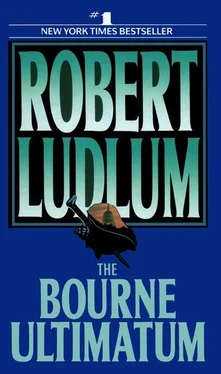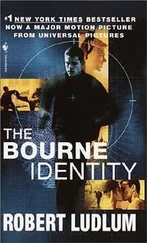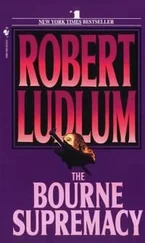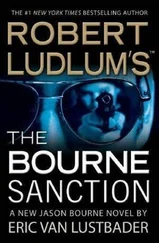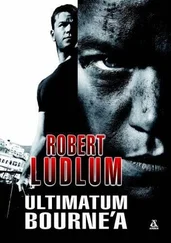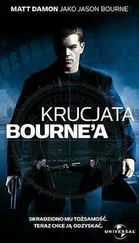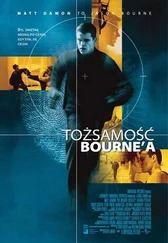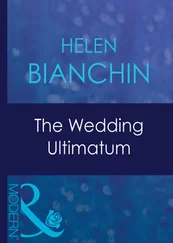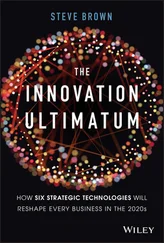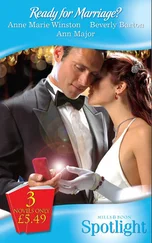"How's Mo?"
"I didn't think he'd live. ... I thought he'd kill himself. Every now and then Walsh would stop. Let me tell you, he was one frightened doctor."
"Why didn't he call it off, for God's sake?"
"I asked him that. He said Panov's instructions were not only explicit but that he'd written them out and signed them and expected them to be followed to the letter. Maybe there's some kind of unwritten code of ethics between doctors, I don't know, but I do know Walsh hooked him up to an EKG, which he rarely took his eyes off. Neither did I; it was easier than looking at Mo. Jesus, let's get out of here!"
"Wait a minute. What about Panov?"
"He's not ready for a welcome-home party. He'll stay here for a couple of days under observation. Walsh will call me in the morning."
"I'd like to see him. I want to see him."
"There's nothing to see but a human dishrag. Believe me, you don't and he wouldn't want you to. Let's go."
"Where?"
"Your place in Vienna-our place in Vienna. I assume you've got a cassette machine."
"I've got everything but a moon rocket, most of which I can't operate."
"I want to stop and get a bottle of whisky."
"There's whatever you want at the apartment."
"It doesn't bother you?" asked Holland, studying Alex.
"Would it matter if it did?"
"Not a bit. ... If I remember, there's an extra bedroom, isn't there?"
"Yes."
"Good. We may be up most of the night listening to these." The director held up the cassettes. "The first couple of times won't mean anything. All we'll hear is the pain, not the information."
It was shortly past five o'clock in the afternoon when they left the estate known within the Agency as Sterile House Five. The days were growing shorter, September on the cusp, the descending sun announcing the forthcoming change with an intensity of color that was the death of one season and the birth of another.
"The light's always brightest before we die," said Conklin, leaning back in the seat beside Holland in the limousine, staring out the window.
"I find that not only inappropriate but quite possibly sophomoric," declared Peter wearily. "I won't commit to the latter until I know who said it. Who was it?"
"Jesus, I think."
"The Scriptures were never edited. Too many campfires, no on-scene confirmation."
Alex laughed softly, reflectively. "Did you ever actually read them? The Scriptures, I mean."
"Most of it-most of them."
"Because you had to?"
"Hell, no. My father and mother were as agnostic as any two people could be without being branded godless pariahs. They shut up about it and sent me and my two sisters to a Protestant service one week, a Catholic mass on another, and a synagogue after that. Never with any regularity, but I guess they figured we should catch the whole scene. That's what makes kids want to read. Natural curiosity wrapped in mysticism."
"Irresistible," agreed Conklin. "I lost my faith, and now after years of proclaiming my spiritual independence, I wonder if I'm missing something."
"Like what?"
"Comfort, Peter. I have no comfort."
"For what?"
"I don't know. Things I can't control, maybe."
"You mean you don't have the comfort of an excuse, a metaphysical excuse. Sorry, Alex, we part company. We're accountable for what we do, and no confessional absolution can change that."
Conklin turned his head, his eyes wide open, and looked at Holland. "Thank you," he said.
"For what?"
"For sounding like me, even using a variation of the words I've used. ... I came back from Hong Kong five years ago with the banner of Accountability on my lance."
"You've lost me."
"Forget it. I'm back on track. ... 'Beware the pitfalls of ecclesiastical presumption and self-absorbed thought."
"Who the hell said that?"
"Either Savonarola or Salvador Dali, I can't remember who."
"Oh, for Christ's sake, cut the crap!" laughed Holland.
"Why should I? It's the first chuckle we've had. And what about your two sisters? What happened to them?"
"It's a better joke," replied Peter, his head angled down into his chin, a mischievous smile on his lips. "One's a nun in New Delhi, and the other's president of her own public relations firm in New York and uses better Yiddish than most of her colleagues in the profession. A couple of years ago she told me they stopped calling her shiksa. She loves her life; so does my other sister in India."
"Yet you chose the military."
"Not 'yet,' Alex. ... And I chose it. I was an angry young man who really believed this country was being dumped on. I came from a privileged family-money, influence, an expensive prep school-that guaranteed me-me, not the black kid on the streets of Philadelphia or Harlem-automatic admittance to Annapolis. I simply figured I had to somehow earn that privilege. I had to show that people like me didn't just use our advantages to avoid, but instead to extend, our responsibilities."
"Aristocracy reborn," said Conklin. "Noblesse oblige-nobility imposes obligations."
"That's not fair," protested Holland.
"Yes, it is, in a very real sense. In Greek, aristo means the 'best,' and kratia is the word for 'rule.' In ancient Athens such young men led armies, their swords up front, not behind, if only to prove to the troops that they would sacrifice with the lowliest of them, for the lowliest were under their commands, the commands of the finest."
Peter Holland's head arched back into the top of the velvet seat, his eyes half closed. "Maybe that was part of it, I'm not sure-I'm not sure at all. We were asking so much ... for what? Pork Chop Hill? Unidentifiable, useless terrain in the Mekong? Why? For Christ's sake, why? Men shot, their stomachs and chests blown away by an enemy two feet in front of them, by a 'Cong who knew jungles they didn't know? What kind of war was that? ... If guys like me didn't go up with the kids and say, 'Look, here I am, I'm with you,' how the hell do you think we could have lasted as long as we did? There might have been mass revolts and maybe there should have been. Those kids were what some people call niggers, and spics and the foul-ups who couldn't read or write beyond a third-grade level. The privileged had deferments-deferments from getting soiled-or service that damn near guaranteed no combat. The others didn't. And if my being with them-this privileged son of a bitch-meant anything, it was the best gig I ever did in my life." Holland suddenly stopped talking and shut his eyes.
"I'm sorry, Peter. I didn't mean to rough up past roads, I really didn't. Actually, I started with my guilt, not yours. ... It's crazy how it all dovetails and feeds upon itself, isn't it? What did you call it? The merry-go-round of guilt. Where does it stop?"
"Now," said Holland, sitting up in the seat, straightening his back and shoulders. He picked up the limousine telephone, punched two numbers and spoke. "Drop us off in Vienna, please. And when you've done that, go find a Chinese restaurant and bring us back the best they've got. ... Frankly, I'm partial to spare ribs and lemon chicken."
Holland proved to be half right. The first hearing of Panov's session under the serum was agonizing to listen to, the voice devastating, the emotional content blurring the information, especially for anyone who knew the psychiatrist. The second hearing, however, produced instantaneous concentration, engendered without question by the very pain they heard. There was no time to indulge in personal feelings; the information was suddenly everything. Both men began taking copious notes on legal pads, frequently stopping and replaying numerous sections for clarity and understanding. The third hearing refined the salient points further; by the end of the fourth, both Alex and Peter Holland had thirty to forty pages of notes apiece. They spent an additional hour in silence, each going over his own analysis.
Читать дальше
